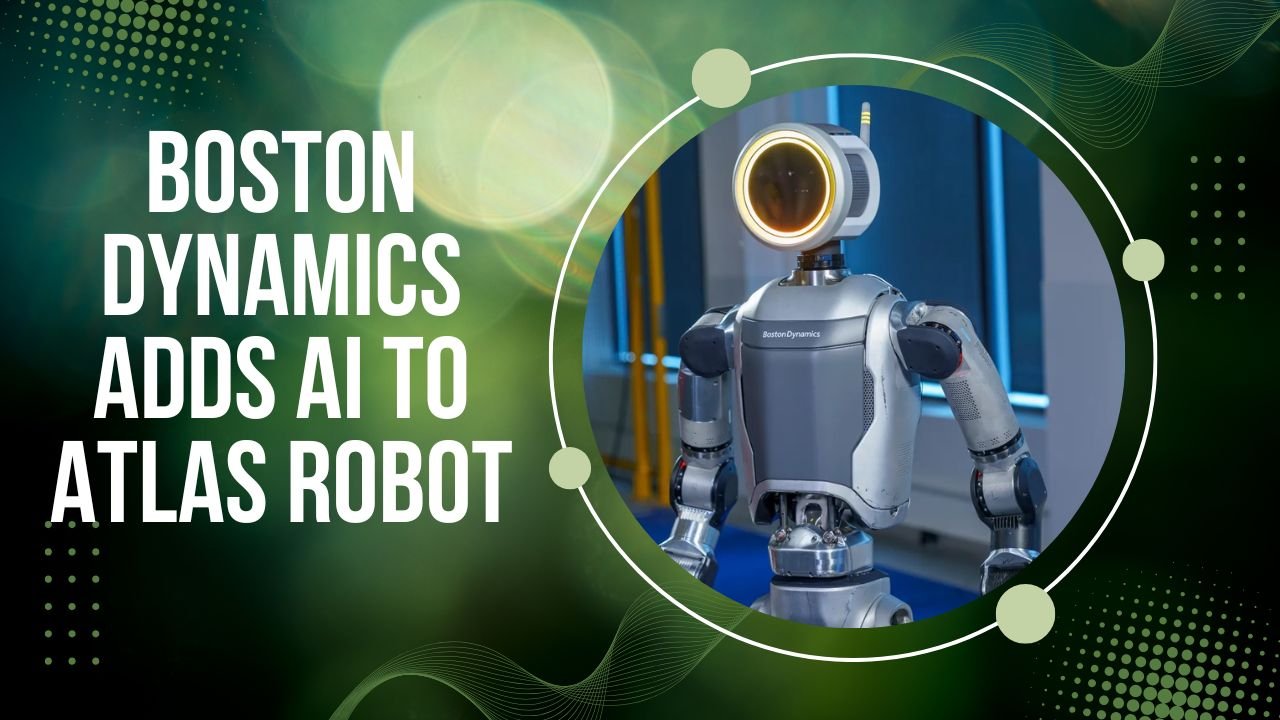Introduction
Boston Dynamics and Toyota Research Institute (TRI) have announced a partnership to integrate advanced artificial intelligence into the Atlas humanoid robot. This collaboration, revealed on October 16, 2024, aims to combine TRI’s innovative Large Behavior Models (LBMs) with Boston Dynamics’ cutting-edge hardware, paving the way for more adaptable and intelligent robots capable of learning and executing complex tasks across various real-world scenarios.
Boston Dynamics-Toyota Partnership
The alliance between Boston Dynamics and Toyota Research Institute brings together two industry leaders in a joint effort to push the boundaries of humanoid robotics. Led by Scott Kuindersma from Boston Dynamics and Russ Tedrake from TRI, the research will take place in Boston, focusing on integrating TRI’s expertise in LBMs with Boston Dynamics’ advanced Atlas robot platform.
This partnership represents a significant step forward in the development of more versatile and intelligent humanoid robots, combining TRI’s cutting-edge AI technology with Boston Dynamics’ renowned hardware capabilities.
Atlas Robot Enhancements
The latest electric version of Atlas, unveiled in April 2024, will serve as the hardware foundation for implementing TRI’s advanced AI technologies. This new iteration of Atlas is designed to excel in both physical abilities and software interfaces for executing comprehensive body movements, making it an ideal platform for AI-driven manipulation skills.
Key enhancements to Atlas include:
- Improved bimanual manipulation for a wide range of tasks
- Integration of TRI’s Large Behavior Models (LBMs) for rapid skill acquisition
- Enhanced whole-body mobility and dexterity
- Capability to learn from human demonstrations and adapt to new situations
- Improved sensors and data collection systems for performance evaluation and AI model training
These advancements are expected to significantly expand Atlas’s capabilities, potentially enabling it to perform complex tasks with greater autonomy and flexibility in various real-world scenarios.
AI-Powered Applications
The collaboration between Boston Dynamics and TRI aims to develop AI-powered applications for the Atlas robot that extend beyond traditional industrial tasks. By leveraging TRI’s expertise in Large Behavior Models, the partnership seeks to create humanoid robots capable of adapting to complex, real-world scenarios.
Potential applications include:
- Elder care and household assistance, with robots learning to perform daily tasks through observation and interaction
- Rapid acquisition of new, robust, dexterous skills across the entire body, enabling Atlas to tackle diverse challenges in dynamic environments
- Enhanced human-robot interaction, focusing on safety and assurance cases to support emerging capabilities
- Implementation of vision-and-language-oriented foundational models for advanced manipulation tasks, drawing on TRI’s research in computer vision and large language models
While the immediate focus remains on industrial applications, the long-term goal is to develop versatile humanoid robots that can seamlessly integrate into various aspects of human life, potentially revolutionizing sectors such as healthcare, domestic support, and emergency response.
Impact on Robotics Industry
The Boston Dynamics-TRI collaboration is poised to have a significant impact on the robotics industry, potentially accelerating the development of general-purpose humanoid robots. This partnership brings together two powerhouses in the field, combining Boston Dynamics’ expertise in hardware with TRI’s advancements in AI and machine learning.
Key impacts on the robotics industry include:
- Accelerated development of versatile humanoid robots capable of performing a wide range of tasks
- Increased competition in the humanoid robot market, with other players like Tesla, Apptronik, and Figure also vying for market share
- Potential for faster commercialization of humanoid robots for industrial and household applications
- Advancement of AI-driven robotic control systems, particularly in the area of Large Behavior Models (LBMs)
- Increased focus on human-robot interaction and safety considerations as these technologies become more prevalent
This collaboration may set a new standard for industry partnerships, potentially leading to more cross-company collaborations in the robotics field and accelerating overall progress in the development of intelligent, capable humanoid robots.
Conclusion
The partnership between Boston Dynamics and Toyota Research Institute marks a significant milestone in the evolution of humanoid robotics. By combining advanced AI with state-of-the-art hardware, this collaboration has the potential to revolutionize the capabilities of robots like Atlas, opening up new possibilities for their application in various sectors of society. As this technology continues to develop, it will be crucial to monitor its progress and consider the implications for the future of human-robot interaction and the broader impact on industries and daily life.

